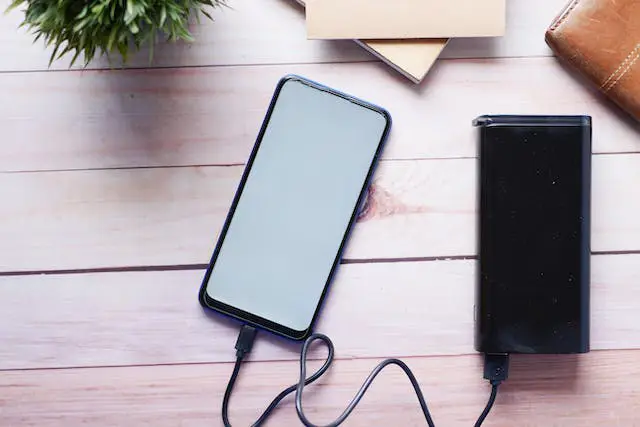Phone batteries are getting better each year, yet the incremental improvement isn’t enough to keep up with the varied communication, entertainment, and productivity needs our phones serve on the daily.
You must’ve found yourself with an out-of-charge phone at least once and realized the importance of keeping it charged at all times. If you have a busy lifestyle then having a power bank or a battery case is a convenient way to carry some extra charge with you everywhere you go. However, there are a few things you need to consider before choosing one over the other. This blog goes over the pros and cons of each and offers a thorough comparison of both to make it easier to choose the right product for your lifestyle.
Pros of Battery Cases
Compact Design
Battery cases are mobile power accessories that are designed to wrap around your phone like any ordinary case so their biggest advantage is the slim design. Many of the older models are heavy and bulky but you’ll find many sleeker options among the newer models, some of which are so compact and lightweight that they’re hardly noticeable.
Easy to Carry
Do you have a habit of forgetting or misplacing things? Well, you’ll never have to worry about your battery case getting lost somewhere in your belongings because it’ll stay attached to your phone and go with you everywhere. Your phone will feel heavier than before for sure but you may find this option better than carrying a power bank which comes with the possibility of getting lost or misplaced.
Charge With Phone
Another advantage that makes battery cases an attractive mobile accessory is that they don’t have to be charged separately from your phone. Older models used to require separate charging but the newer models come with pass-through charging that allows charging both your phone and the battery case simultaneously. This way battery cases become an extension of your phone’s battery.
Cons of Battery Cases
Device Specific
The biggest disadvantage of battery cases is undoubtedly their limited compatibility. Battery cases are device-specific, meaning they only work with one type of device. If you buy a battery case for your iPhone 15 and then upgrade to a different phone next year then your current battery case will become obsolete, which means you’ll have to spend more money to get a new battery case. This is a deal-breaker for many people.
Limited Capacity
Another disadvantage of battery cases is their charging capacity. You’ll find battery cases that can hold charges up to 20000mAh capacity but most cases fall far below this number. This may be adequate if you don’t use your phone that much but for people who use their devices vigorously, this would be inadequate.
Pros of Power Banks

Multi-Device Compatibility
Our phones aren’t the only devices that need charging. Many of us carry tablets, laptops, and other electronic devices in addition to our phones. If you find yourself in a situation where you need to charge two or more devices at once, you’ll be glad to have invested in a power bank over a battery case.
Higher Capacity
Unlike phone batteries, power banks see monumental improvements in capacity each year. Until a few years ago power banks with 10,000 mAh or 20,000 mAh were the norm but now you can easily find power banks with 50,000 mAh capacity. This is enough to fully charge the base iPhone model 14 times. In fact, now you can even find power banks with fast charging capabilities going well beyond 50,000 mAh.
Future Proof and Cost-Effective
Investing in a power bank is a smart choice because it won’t become obsolete when you have to upgrade your phone. It will retain its versatile utility for different devices over time and even if charging cables change, it will remain useful because buying a new cable is cheaper than replacing your battery backup device again and again.
Cons of Power Banks
Heavy and Bulky
For all their advantages, power banks suffer from one glaring shortcoming—they’re bulky. The weight and bulk are proportional to the charging capacity of the power bank. So if you want more charge, expect to be carrying around extra weight in your belongings. Newer designs are getting slimmer and lighter but the difference hasn’t been significant enough for it to not be a con yet.
Requires Cables
The versatility of power banks with different devices comes at a cost. While you only need one cable with battery cases, you’ll need to carry around multiple ones for your power bank if you want to charge multiple devices. This adds to the extra weight you have to carry around.
Verdict: Which One Is Best for You?
Power banks and battery cases both have their pros and cons. When it comes to the better option, most people would agree on power banks. However, the truth is that it all depends on your personal preference.
Power banks are versatile, cost-effective, and future-proof but are big and heavy. Battery cases are comparatively lighter and easier to carry but offer less versatility and add additional weight to the device itself. No matter which option you choose, remember to follow safety precautions because neither of them can handle extreme temperatures. Even water damage to your phone can also affect the external power device when it’s plugged in. Hope this information has helped you finalize your choice!





Ive read several just right stuff here Certainly price bookmarking for revisiting I wonder how a lot effort you place to create this kind of great informative website